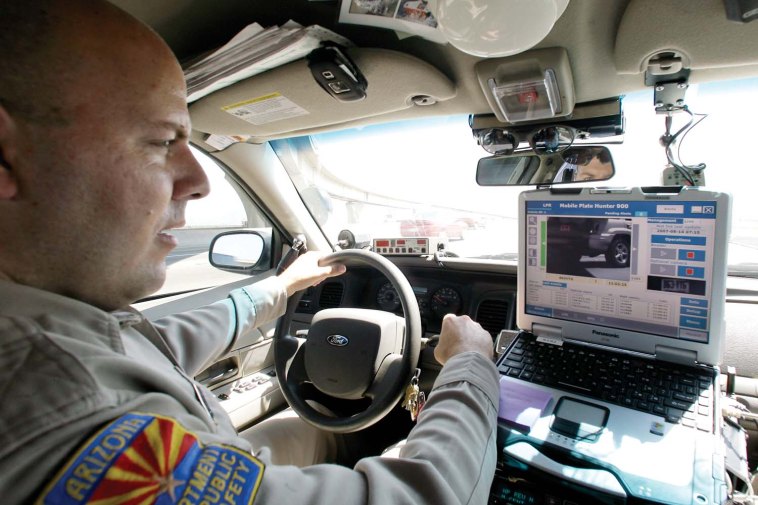WASHINGTON — Is it a key new tool to get criminals off the streets — or a way for the government to invade your privacy?
Videos By Rare
The Department of Homeland Security wants to create a nationwide database with every American’s license plate number according to a posting the agency issued looking for vendors to build the tracking system. But there are few details about what privacy safeguards would be put in place.
Under the plan, an officer could snap a picture of your plate with an iPhone and immediately be notified if it’s on a list of “target vehicles.” The license plate readers alert police if the driver is a wanted criminal or driving a stolen car.
While such a system is already in place in several spots around the country, the U.S. Department of Homeland Security wants a nationwide database.
Privacy advocates say it’s another way the government is monitoring the movement of citizens.
Devices such as license plate readers and cellphone trackers “can tell whether you stayed in a motel that specializes in hourly rates, or you stopped at tavern that has nude dancers,” David Fidanque, director of the American Civil Liberties Union of Oregon, told the Associated Press. “It’s one thing to know you haven’t violated the law, but it’s another thing to know you haven’t had every one of your moves tracked.”
Gillian Christensen, a spokeswoman for DHS’s Immigration and Customs Enforcement agency (ICE), told the Washington Post the database “could only be accessed in conjunction with ongoing criminal investigations or to locate wanted individuals.”
According to Christensen, such a system would reduce the amount time required for surveillance and would give agents a greater ability to locate potential threats to public safety.
“It is important to note that this database would be run by a commercial enterprise, and the data would be collected and stored by the commercial enterprise, not the government,” she told the Washington Post.
In some states, the use of this technology is getting nasty. In Utah, a company that makes automated license plate readers sued the state government over a new law there intended to protect drivers’ privacy.
Florida driver Justin Davis thinks this would be an invasion of privacy.
“It’s becoming too much,” Davis told Orlando TV station WFTV. “(The tracking system) could be used to pull somebody over or harass them.”
In 2012, WFTV reported Orlando police had scanned more than 38,000 plates, but only 557, or 1.4 percent, were connected to criminals.
Privacy advocates warn that a federal database collecting license plate information could be a slippery slope.
“People who trust the government might say, ‘What matters, I have nothing to hide,’” said Jim Harper with the Cato Institute. “People who don’t trust the government might worry because they worry about a future where the government isn’t as friendly as it is today.”
—The Associated Press contributed

